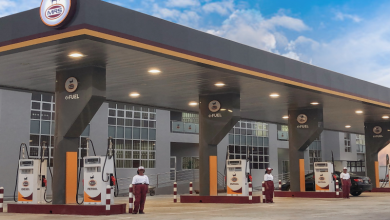TCN and DISCOs dispute over decrease in 20-hour power supply amid tariff hike

As frustration grows among Band A customers due to the inability of Electricity Distribution Companies (DisCos) to fulfill the promised 20-hour minimum supply, several communities are taking matters into their own hands.
They are approaching their respective DisCos, seeking to downgrade their status to Band B in hopes of more realistic service expectations.
According to Vanguard, the residents are insisting that since they were not getting the promised 20 hours per day, they should not be forced to pay the N225 per kilowatt hour tariff increase ordered by the Nigerian Electricity Regulatory Commission, NERC.
However, findings indicated it was not entirely the fault of DISCOs as the power allocation from the upstream value chain has declined significantly, making it difficult for the DisCos to meet up with the minimum supply benchmark.
Data supplied by Independent System Operator, at the weekend, showed that load allocation to the eleven DisCos stood at 2,989 Megawatts, a significant drop from the 4,200MW average needed to meet the tariff requirement.
The data indicated that Abuja Disco got the highest allocation of 461 MW, down from 611MW recorded a few days ago. It was followed by Ikeja Electric at 455MW, Eko DisCo at 387MW, Ibadan DisCo at 360MW, Benin DisCo at 245MW, and Enugu DisCo at 216MW.
Others were Port Harcourt DisCo 213MW, Kano DisCo 202MW, Kaduna Electric 195MW, Jos DisCo 170MW and Yola DisCo 85MW.
Meanwhile, a source in Eko DisCo said the company was meeting up with the prescribed minimum of 20 hours but explained that what they do is that on some days they supply more than the minimum, and they cut back the excess supply from the minimum supply the following day, a situation which may have left the consumers with the impression of under-supply.
He advised that the consumers should track average supply over a period of time.
Meanwhile, the Transmission Company of Nigeria, TCN, has publicly disagreed with the DisCos over failure to meet the 20-hour minimum electricity supply demand. Benin, Ibadan, and Port Harcourt DisCos had in a notice to consumers attributed the failure to challenges faced by TCN.
Benin DisCo disclosed that problems at the Amukpe transmission station led to over seven hours of outage while faults at the Effurun transmission station also led to over eight hours of outage.
But TCN in a statement said that was not the true picture.
According to TCN General Manager, Public Affairs, Ndidi Mbah, “the incorrect attribution of these faults to TCN is clearly shown in the table on the release by IBEDC.
“For clarity, we note that on the 11th of April 2024, the Amukpe 33KV feeder tripped at 2:31 pm and was restored by 4.08 pm, within one hour and 54 minutes. The cause of the outage, which was clearly under BEDC purview, was an instantaneous earth fault caused by stormy weather, which was restored on trial reclosure after the rain had subsided.
“Still, on the 11th of April 2024, Effurun 33KV feeder tripped at 12:25 p.m., and it is still out. The cause of the tripping was an earth fault on the outgoing feeder upriser, also from the BEDC DISCO end”.
On Ibadan DisCo claims that TCN is responsible for its failure to deliver estimated hours of supply to Band A customers due to system outages and tripping on TCN’s feeders, Mbah said after investigation it was established that the feeders mentioned “are not within the TCN network. This means that most of the listed feeders in the publication are 11kV operated by IBEDC and completely outside TCN’s Operational Control and in IBEDC’s network.
“That the reasons given for the outage on IBEDC 11kV and 33kV are earth/over current faults, which have no bearing on TCN’s frequency control operations.
“That the statement by IBEDC has been verified by TCN’s regional management in Osogbo in conjunction with IBEDC Officials themselves and has been proven to be false, necessitating necessary corrections being made.





